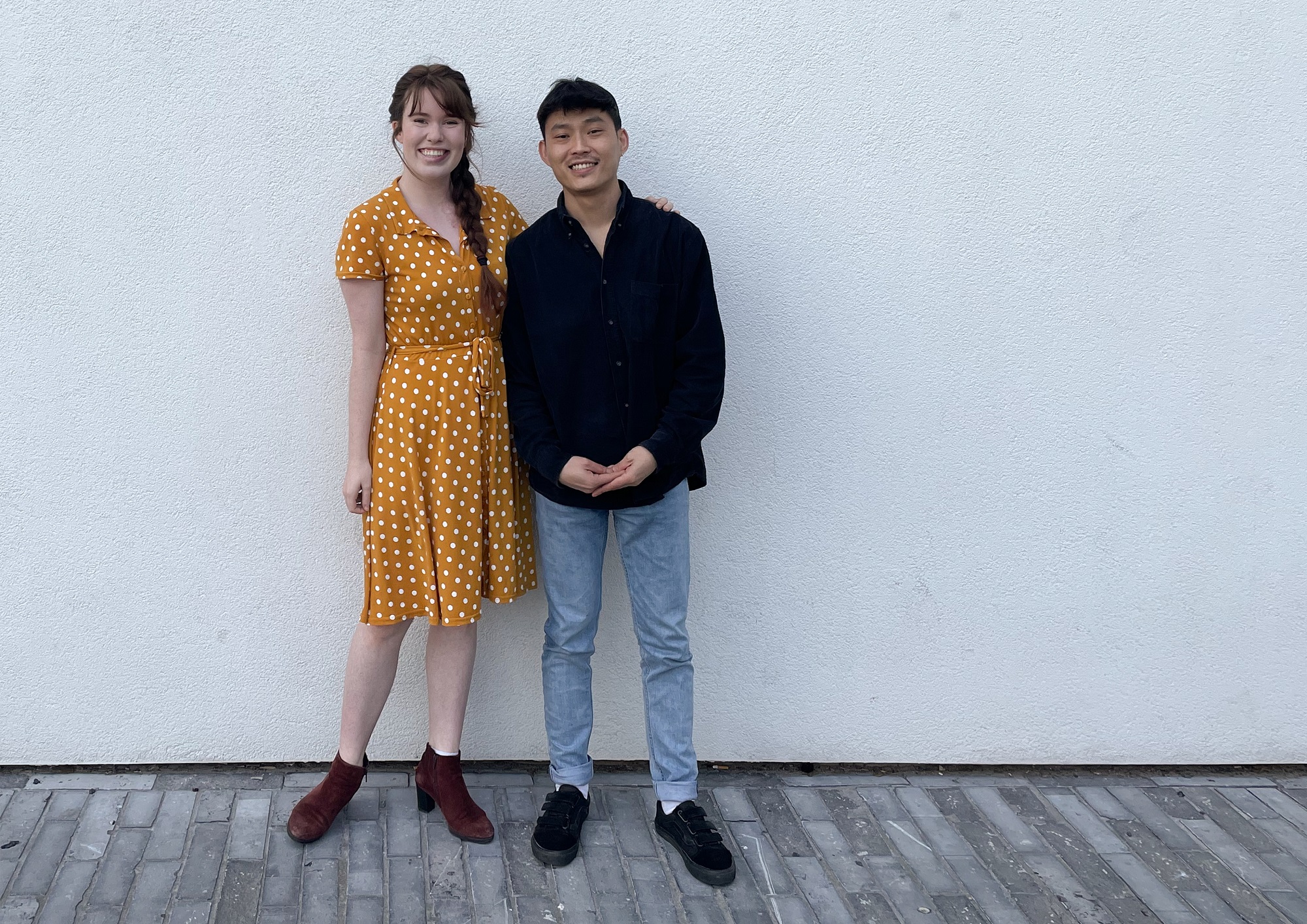Starting a student dance association during a pandemic was both challenging and perfect according to Pak Long Cheung and Evianne Moonen.
Evianne Moonen and Pak Long Cheung: “At the end of the day, we’re not a dance school, we’re a student association and a very big part of that is socialising.” (Photo: Private collection)
Cheung: “Last year I graduated with a master’s in Product Design (Faculty of Industrial Design Engineering) and I was also Chairman of the founding board of DSDA Dynamic. In that first year of the pandemic, it was honestly a struggle, but we knew that we had something that people would like to join. It wasn’t just an assumption but something that we saw in other student cities like Amsterdam and Rotterdam where there are a lot of dance associations. Not only for partner dance, but also for styles like classical ballet, hip hop, modern, and more. In our experience, high school students generally have more prior engagement with these styles. Looking back on the last year I would say that although Covid might have made it more challenging, it was also the perfect year to pilot this idea without having too many costs attached. In the end we did a lot of things online so we didn’t have to rent places. We could really focus on the core values that we wanted to create for student culture.”
Moonen: “I’m also studying industrial design, but I’m doing my bachelor’s and I’m in my third year. I was a part of the board last year as Commissioner of Promo & Media. I made sure we got a lot of attention through social media, made posters, videos etcetera. Because it was the first board, we all had to help with a bit of everything. This year I continued and I am Vice President. As the only one from the first board, we decided I could bring a bit of consistency because we were not as established as we wanted to be yet.
Cheung: “During the pandemic the digital presence was pretty much all we could have. Last year we got a lot of great feedback from the members, even about the Zoom classes. People were looking for something like this but couldn’t find it so it’s nice to see that that energy is continuing and to see how it’s playing out with the members now.”
‘It’s lovely to see it grow from a ‘shy’ organisation into a community’
Moonen: “Last year we struggled with letting people get to know each other. It was very easy to join the Zoom lessons and it was right at the time when everything was online. But we had the feeling that people just showed up and didn’t interact, did the dance and then left. We felt we were missing more of the social aspect and it was a struggle to figure out. That was one of the things that was really high on our priority list for this year. As things opened up, we really wanted to make sure that activities and the social part would be a highlight of this year. In September we had a bootcamp day, a day of activities to make sure that the members could get off to a good start. People are really getting to know each other now and meeting up with each other, we have parties and go out together. We also have a few committees so people are beginning to organise things for themselves within the community. It’s lovely to see it grow from a ‘shy’ organisation into a community. For us, that was always the vision, to create a dance community.”
Cheung: “We do things like having social drinks together, go bowling and last week we went to the Dutch National Ballet. We really want to see people mingling together right after classes. At the end of the day, we’re not a dance school, we’re a student association and a very big part of that is socialising. It brings all kinds of students together – international students and people who are new to Delft. Dance is not necessarily the product itself it’s more the tool that we use to bring people together.”
Moonen: “At the beginning of each semester we have try-outs so there are two weeks when we have free dance lessons for everyone. You can just show up and there is no expectation of joining permanently. This is really just about feeling the energy because with dancing it’s also about the vibe. If you’re a member then everything is open to you. You can join all of the dance classes and activities, it’s all included.”
Cheung: “At the end of last year we had about 180 non-paying members on our mailing list. In the first month, October, we converted 80 members into paying members which is a lot. We think our core dance styles are what most people are used to. We recognised there was a gap for this sort of thing in Delft and that’s what we wanted to fill.”
Moonen: “This past October we had huge growth and we had to stop taking new members for a while to make sure we could keep up with the demand. But that’s over now and last month we reached our 100th member. We’re still growing as a dance community, so if people are interested in signing up, please visit us on our website to get an impression of the association.”
Want to be featured in Humans of TU Delft? Or do you know someone with a good story to tell? Send us an e-mail at humansoftudelft@gmail.com
Heather Montague / Freelance writer



Comments are closed.